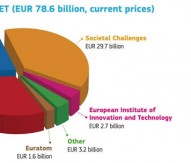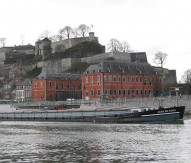
Malta as an R&D hub?
Evaluating Malta as a European R&D hub is difficult. The Mediterranean island secured one of the lowest levels of FP7 funding compared to other EU member states, yet the country is striving ahead with significant development of its research and innovation sector and has already nearly met its 2020 R&D intensity target of 0.67% (it achieved 0.63% in 2010). Despite economic difficulties, public expenditure in R&D continues to grow, with government investment equalling €42m in 2010.
The Malta Council for Science & Technology (MCST) is the key government organisation for innovation on the island and undertakes a number of essential roles. Speaking to Horizon2020projects.com, FP7 Executive Diana Spiteri outlined the importance of EU funding to Malta and the steps it will be taking to help boost participation in Horizon 2020.
What are the main functions of the MCST and what role will the organisation play in Horizon 2020?
The MCST is the government body responsible for research and innovation policy, promoting scientific research, management of local research and innovation and commercialisation funding programmes. It is also the national contact point for FP7, Horizon 2020 and the COST framework programme.
How would you assess the participation of Maltese companies in FP7?
Regarding the number of projects funded per capita, it looks positive. However, the actual funding received and the majority of roles in the projects was a bit peripheral and not ambitious enough as regards to research.
How vital is EU funding to Malta’s science and innovation considering the increase in public expenditure on R&D?
EU funding is vital to Malta’s science and innovation ecosystem. The increase in public expenditure in R&D over the past two years is partly due to expenditure from EU funding invested in R&D capacity building in academia as well as industry. Money from the European Regional Development Fund and the European Social Fund funds for the 2007-2013 period have been invested in, among others, new and upgraded infrastructures, grant schemes for post-grad and doctoral studies and schemes to support R&I in industry. This, coupled with national funding (albeit on a much smaller scale) are aimed at building capacity and critical mass for Malta to be able to better participate in EU programmes such as Horizon 2020. The role of EU funding goes beyond increasing public expenditure in R&D – it provides networking, knowledge-sharing and even greater critical mass than could be achieved at national level. For a small country, networking with research communities abroad is of great importance.
What are your expectations for Malta in Horizon 2020 and how will you be encouraging greater participation?
Malta is hopeful to participate better in Horizon 2020 than it did in FP7, especially in the number of quality projects, with more ambitious research roles with a higher impact for Malta, and a larger amount of funding per project. In this context, MCST will be encouraging greater awareness/participation through: the launch of Horizon 2020 in Malta; one-to-one meetings with researchers; workshops on thematic areas; holding proposal writing and financial issues seminars to facilitate researchers when drafting proposals; and providing thorough support to researchers until the end of their projects.
An emphasis has to be made with regard to wider participation, whereby smaller states and the EU13 are allowed to play a more central role in projects. It seems that the older and larger member states seem to have larger projects funded due to the trust that has been established from the span of the research framework programmes.
Diana Spiteri


